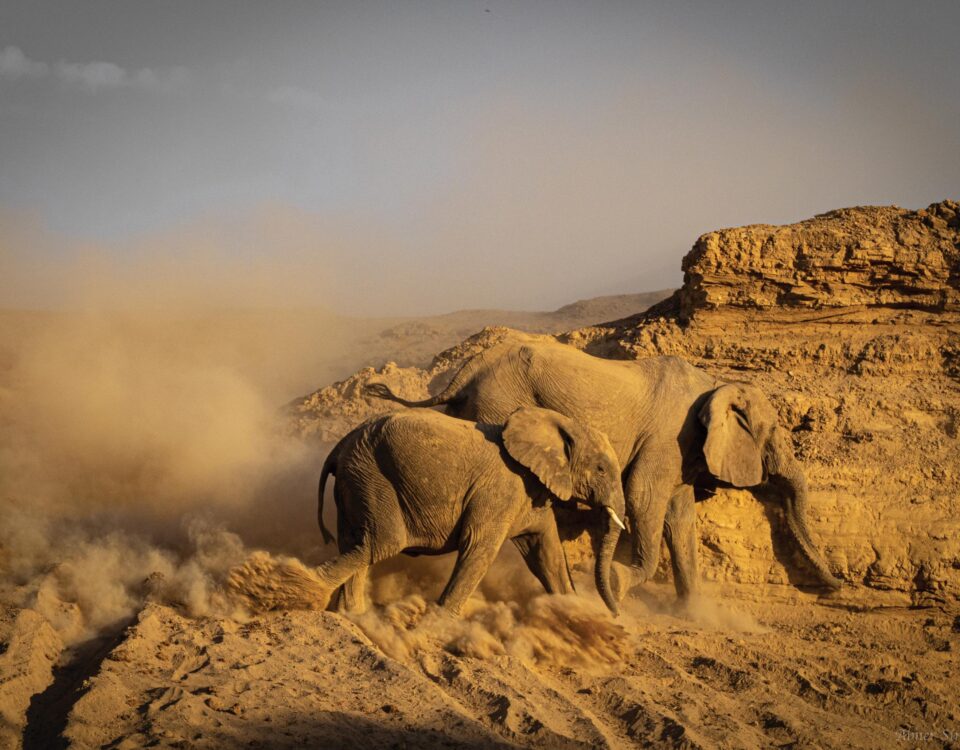
Afford Namibia now – StayToday Namibia
August 9, 2012A life-changing cycling challenge
August 11, 2012Compiled Bill Torbitt
Hot steam, cold mountains
Namibia’s place names come from the culture and mother tongues of all the peoples who have lived here: Bantu-language peoples, Afrikaners, Germans, Portuguese and, of course, the Khoi (San) people.
Even the name of Namibia’s capital, Windhoek, a city just over a century old, has contentious origins. The Otjiherero name for Windhoek is Otjomuise, and in Damara /Ai//gams, both names meaning places of hot steam or smoke (actually Reykjavik in Iceland means the same thing!).
In German it is Windhuk, and in guidebooks the name is often explained as a corruption of Winterhoek, the name of a farm in the Cape that was the ancestral home of one of Namibia’s pioneers. An earlier variant of the name, Wendthoek, literally means the place one makes a turn, possibly referring to travellers from the south turning towards the coast, which at least has a logical ring to it.
Fat cattle and elephants
The name Gobabis, a town in the east, was derived from one of the Khoi languages. It could mean either the place of elephants or the place of strife, depending on the precise phonetic origin of ‘gob’. The former is favoured by the local tourist association, but due to the sad shortage of elephants in the area in recent times, in contrast to the turbulent history of the region, the latter is unfortunately the more likely. Many places have names of disputed meaning. The melodious name of Otjiwarongo, like all names beginning with ‘Otji’, might mean either the place of fat cattle, or simply the pleasant place, perhaps equating fat and pleasant, in an age before the dangers of obesity became emphasised.
Imaginative misnomers
Another name whose origin the tourist industry ‘soft pedals’, is that of Swakopmund. The ‘mund’, of course, is the mouth of the river, but Swakop derives from Tsoaxaub, a Khoi word meaning ‘flow of excrement’. At least this is an imaginative name to describe the former murky flow of the transient river, in which dubious objects also floated down to the sea. But nothing of this is to be seen now, so please do not let it spoil your holiday in the beautiful seaside town. On the road to Swakop is the town of Karibib, probably a corruption of Garibeb, the ‘place of farming’, which is prosaic but fair enough. Close by is another small town, Usakos, thought to mean ‘clutching one’s forehead’ – again a misnomer!
Baobabs and frog spawn
And in the north, the reputed name origin of the town of Uutapi is interesting. The place boasts a huge, famous hollowed-out baobab tree, which was once even used as a fortification in which defenders sheltered against besieging forces. The defenders managed to shoot their way out, whereupon they declared: Uu tapi – (our) bows and arrows are excellent! The name of the mining town,Tsumeb, means ‘frog’ or ‘frog spawn’. This imaginative metaphor compares the colour of the latter to the green colour of the copper ore to which the town owes its origin and prosperity.
Lights out
Katima Mulilo in the far north east, fairly simply, means ‘(we) put out the light’. This probably refers, again, to some defending force escaping under the cover of darkness, and is not as some visitors might suppose, a reflection on the sometimes erratic power supply in this remote region. So, wherever you are staying, whether in a town or a lodge that has an evocative ring to its name, do inquire into its origin and meaning – it will often add to your appreciation of the place.
This article appeared in the Oct’11 edition of FLAMINGO Magazine

